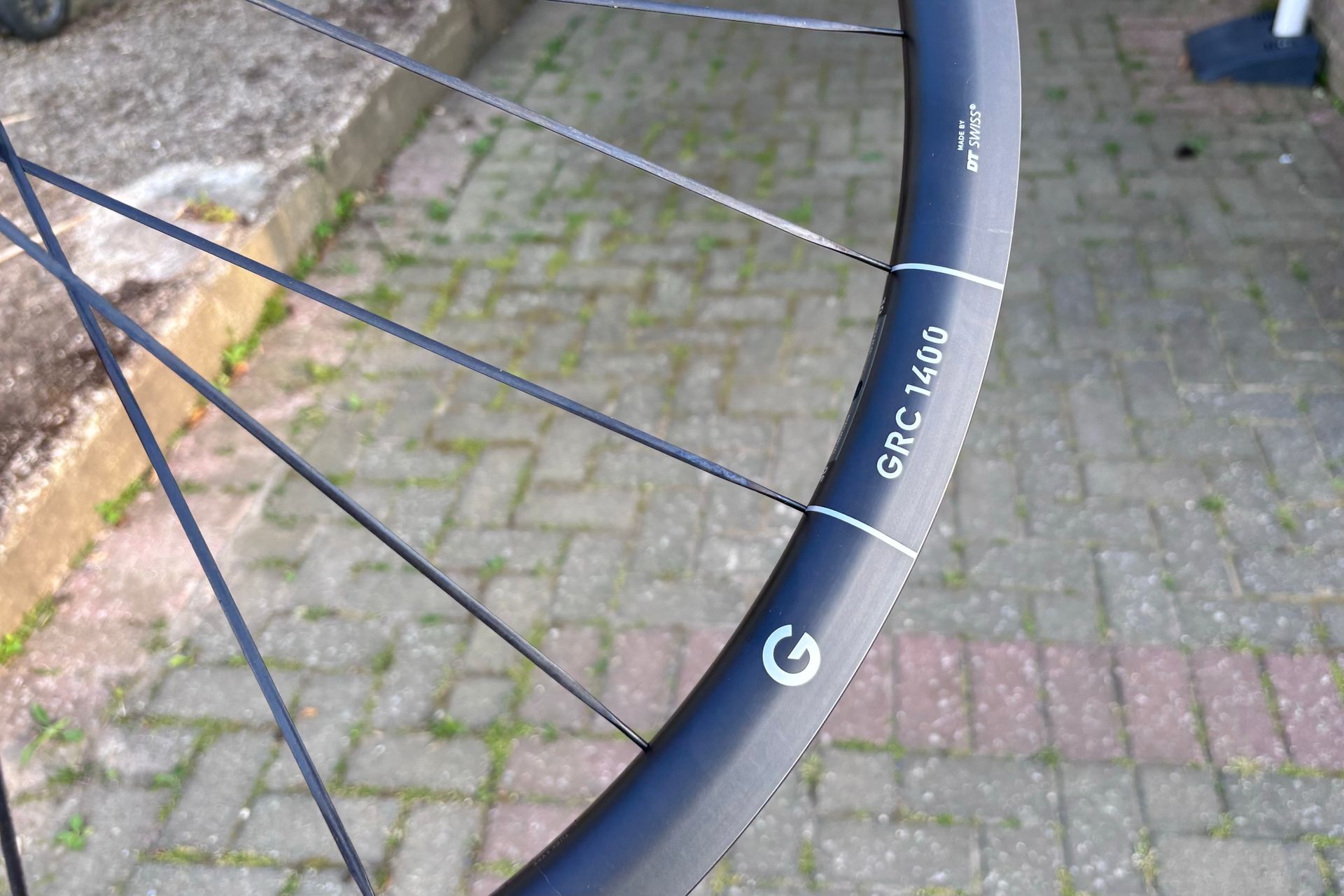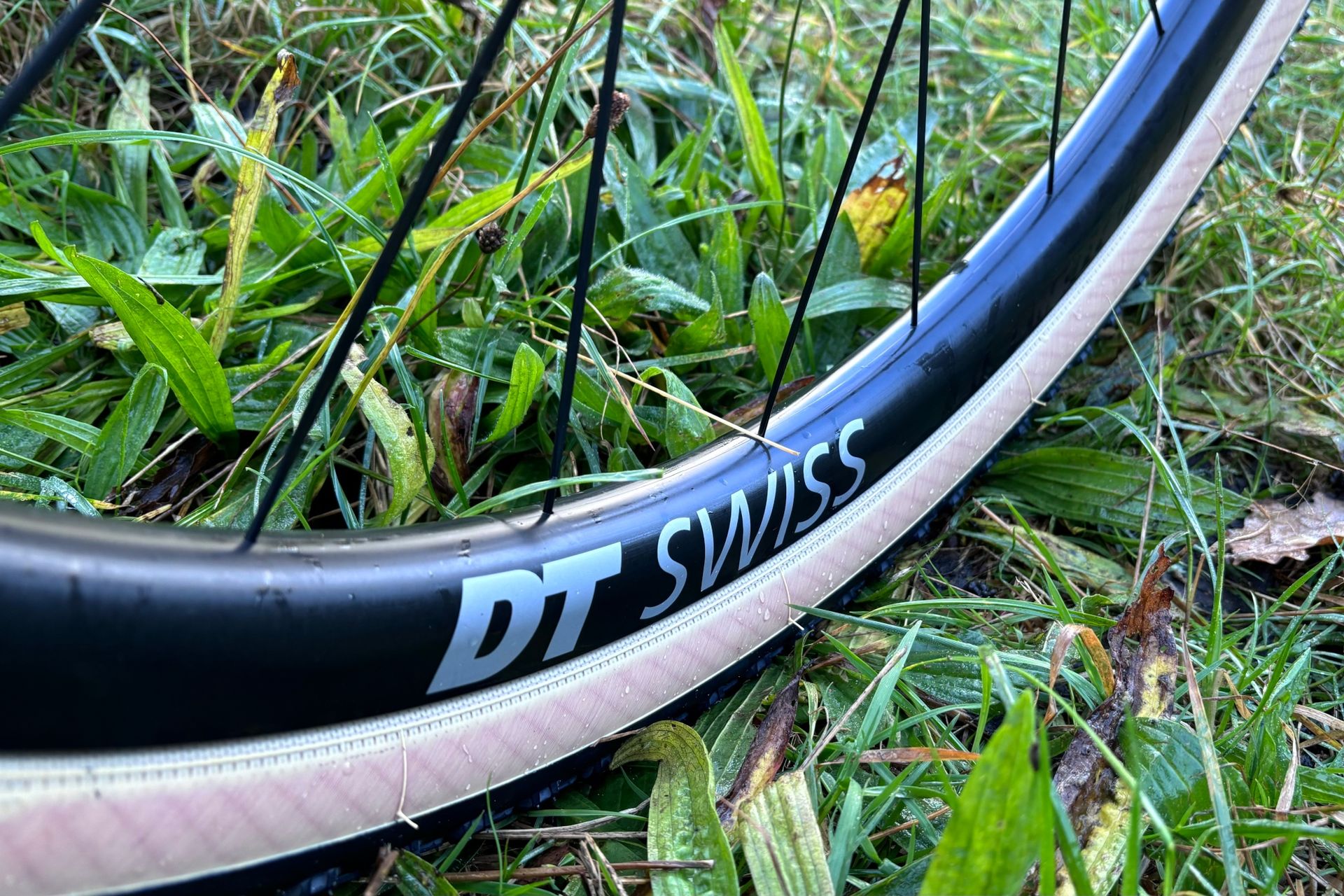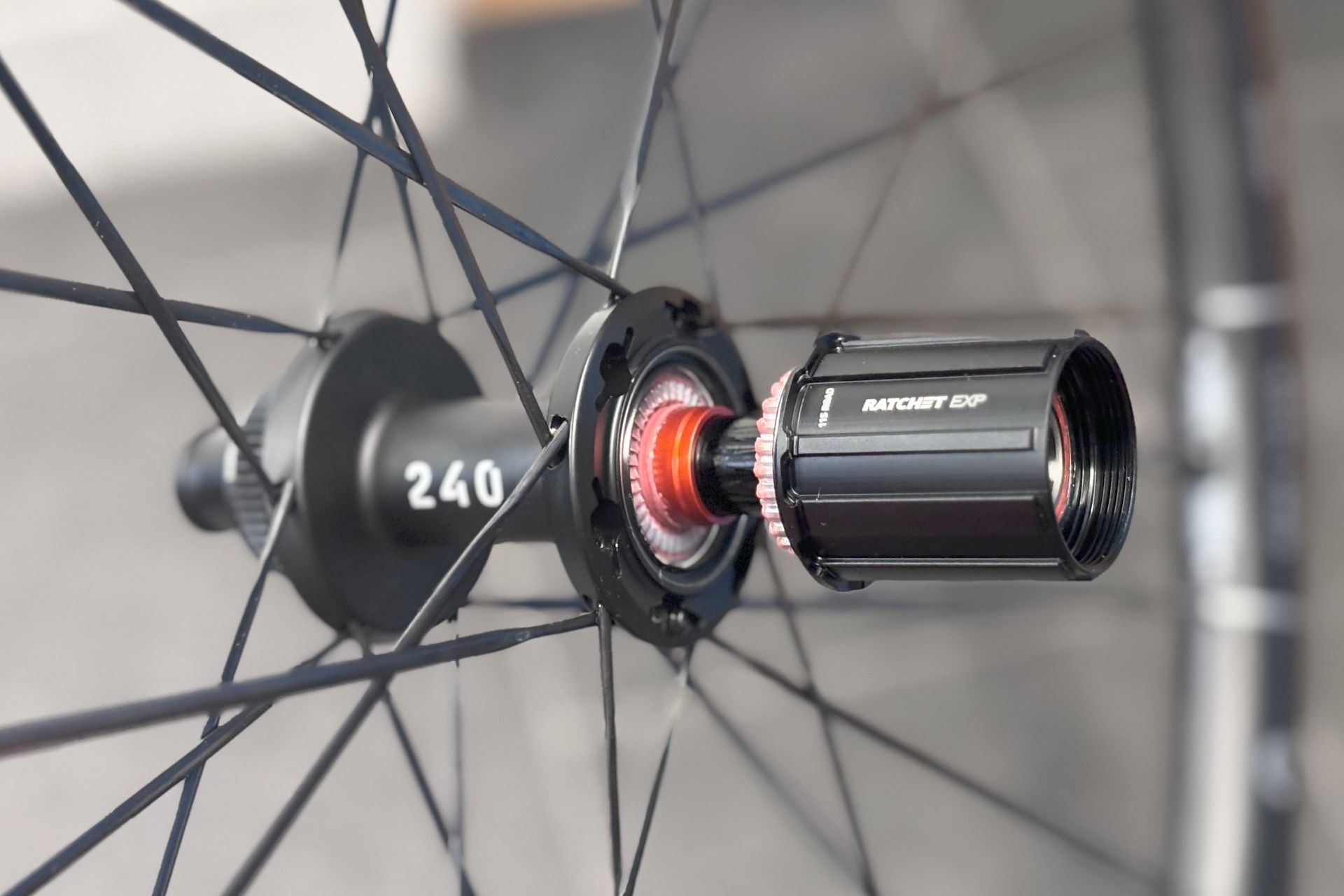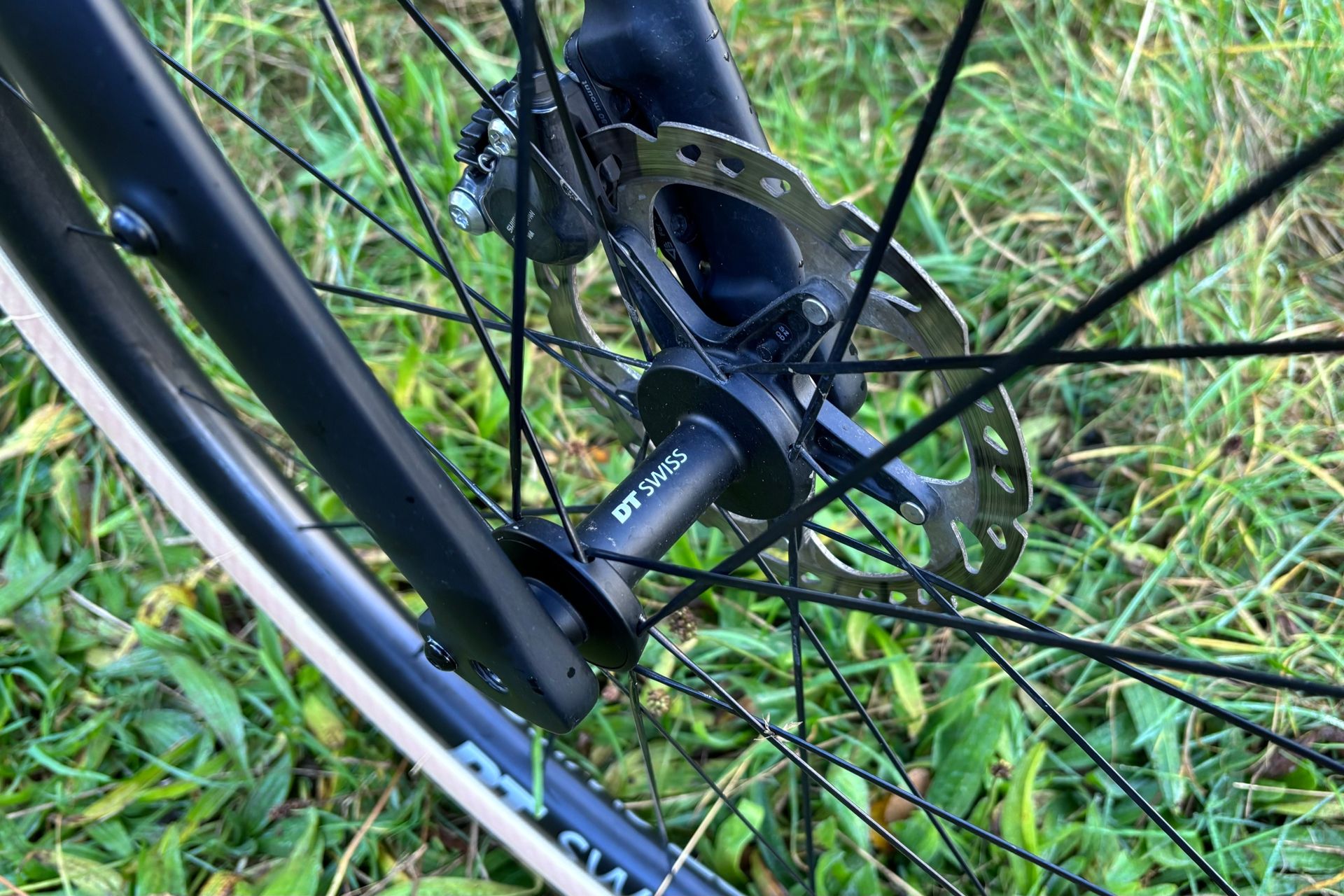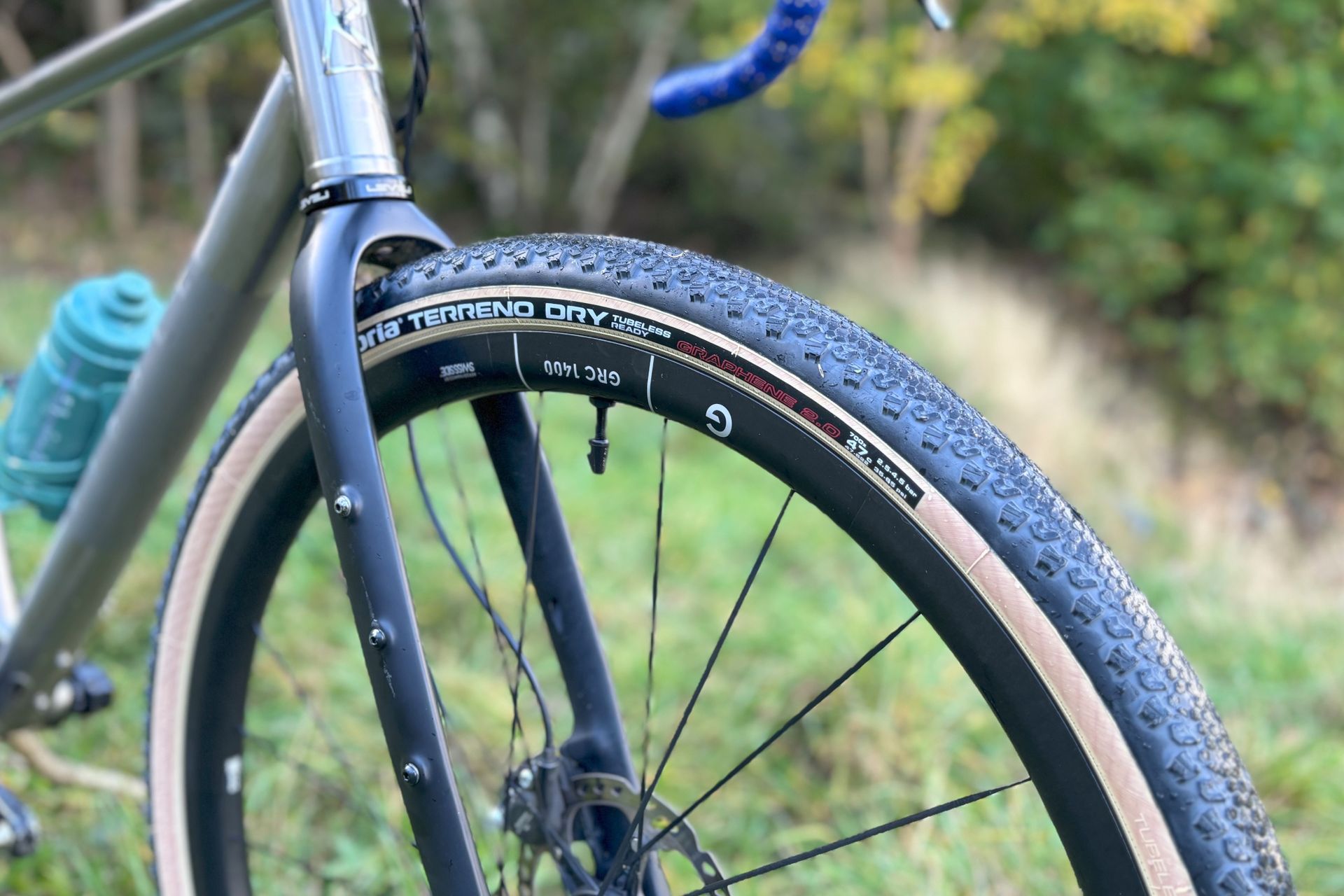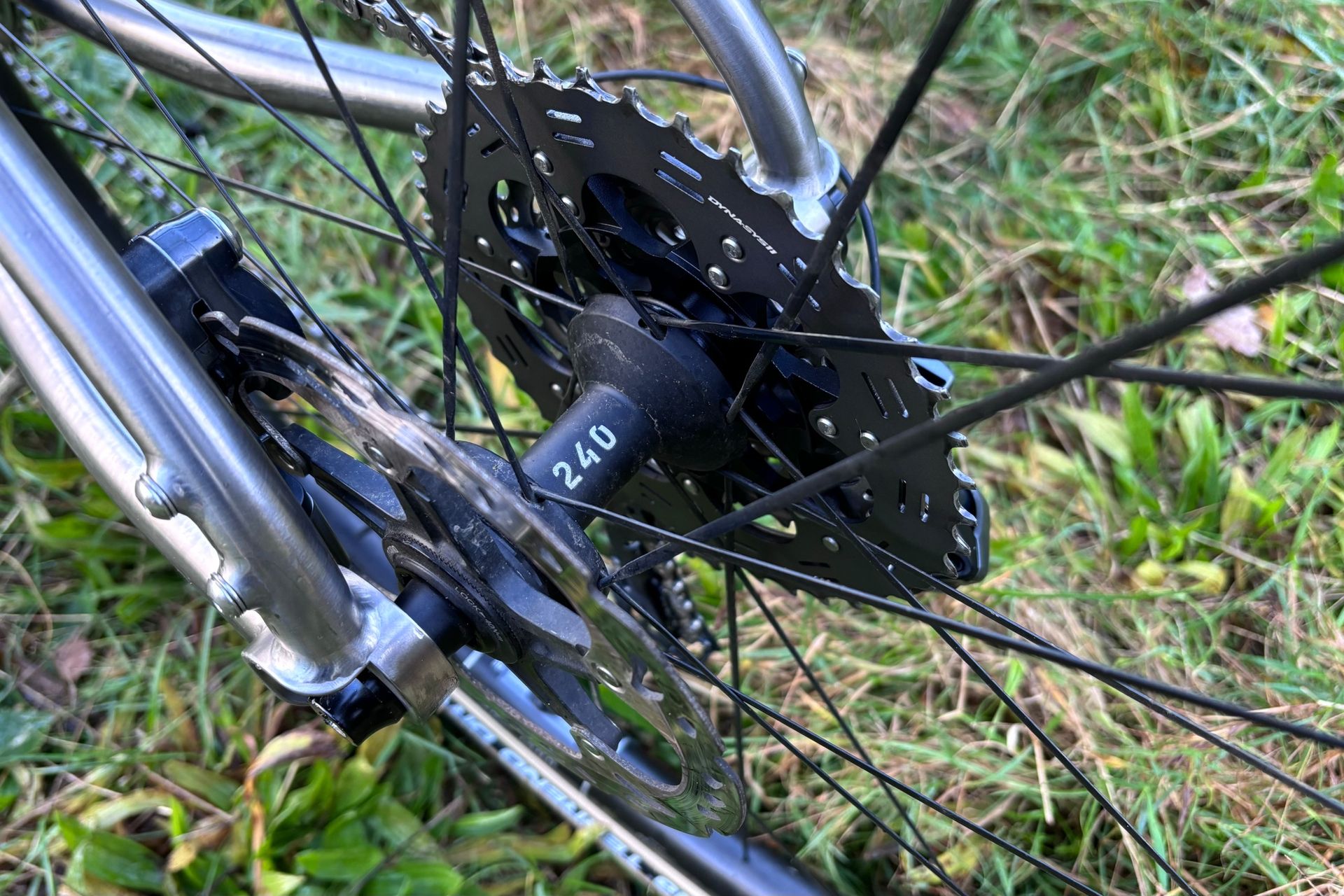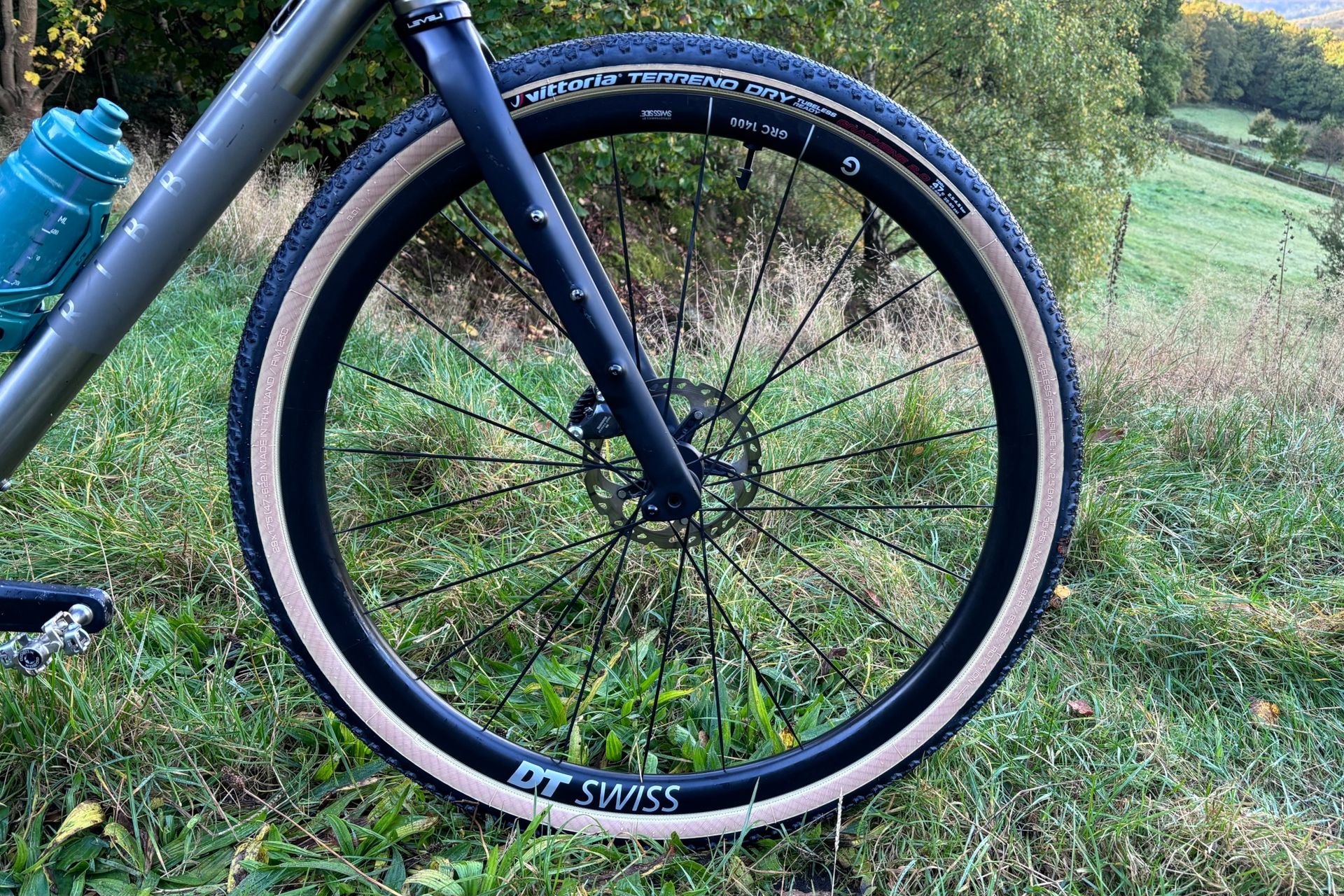DT Swiss GRC1400 Dicut wheelset review: fast, smooth and agile over a multitude of gravel surfaces
DT’s latest wheelset is easily the most expensive pair of gravel wheels I've ever used, but does that mean they are the best?

It's easy to be dismissive of high-ticket items, but these are genuinely brilliant. They aren't as blingy or in your face as you might expect for a pricey wheelset, but an unbelievably smooth ride combined with an addictive turn of speed make these the best wheels I've used. I'm just sad I can't afford them.
-
+
Smooth ride
-
+
Light rim gives a super fast response time
-
+
Seemingly bomb-proof
-
+
Sharper and yet still composed steering response
-
+
Very light
-
-
The high price puts them out of reach for many
-
-
I would like to see a fancier finish
You can trust Cycling Weekly.

I've long been a quiet fan of DT Swiss wheels, whether that was in previous industry roles I had where I valued the no-fuss reliability of a setup that was always ready to go regardless of how little maintenance I’d done or in this job testing various road, gravel, and mtb wheels which all gave a dependable mix of almost boring solid reliability and top end performance at reasonable prices.
The GRC range is the brand's designated carbon gravel wheels, with four models. Simpler, cheaper alloy wheels have a simple G moniker followed by a number. DT’s numbering system can seem a bit confusing at first, but Tyler Boucher did a great job of clearing it up in his first ride review of the range-topping GRC 1100 50mm deep wheels earlier this year.
I was delighted when I got the GRC 1400 Dicut wheels to test this summer until I checked the price and nearly fell off my chair! These wheels sit in the “second tier” of their lineup, yet the price tag still rivals many decent-budget gravel bikes. While I appreciate that top-tier cycling gear often comes at a premium, seeing this level of investment in a set of wheels left me wondering: can they really deliver the performance to justify the high outlay, and how do they compare to the best gravel wheels on the market?
Construction
DT Swiss launched the GRC range this summer, which comprises four wheels that share either a 30mm or 50mm rim and are available with the 180 Ratchet EXP hub with ceramic bearings in the more expensive 1100 variant or with the slightly cheaper 240 Ratchet EXP hub I had in the 1400 I had on test. The two rim depths are designed to give advantages for specific types of gravel riding, the 50mm being all about minimizing watts and aero gains for gravel racing and the shallower 30mm that prioritizes steering agility and responsiveness over straight-line speed, though both have an aerodynamic profile developed in the wind tunnel with aero experts Swiss Side.
The aesthetic is quite plain - no bling here!
The main talking point of the new GRC lineup is its in-house-developed rims. DT Swiss equips each GRC carbon rim with a hooked bead, which they claim to be the "ultimate solution" for the end customer's safety and ease of use. A hookless rim is easier to manufacture and can be lighter, but it also throws up compatibility issues with certain tyre brands, especially with narrower high-pressure rubber. According to DT Swiss, "while creating a hooked bead is indeed more complex, it leads to a rim with a built-in fail-safe, providing riders with the confidence to push harder", and I'd agree totally, making sure your tyre stays connected to your rim is one problem I'd rather not have to worry about.
Such is the quality of manufacture, the rims have this faultless matte finish straight from the mold
At first impression, these are aesthetically a little underwhelming, with a matte back finish on the hubs and rims and subtle branding. They were nothing special at a glance, though their relatively low weight of 1496 grams (including valves) gives you a clue as to how they will perform.
Though not particularly flash-looking, the 30mm deep carbon rim packs a punch using DT’s latest patent-pending process, which DT Swiss is using here for the first time. The new process allows the rim to be ready to ride "straight out of the mold" without any finishing, fillers, or clear coats needing to be added. This gives them a characteristic flat matt finish and, more importantly, helps save grams. It should also give consistent weights across production runs.
Carbon manufacturing can often give varying levels of accuracy and quality control, which usually makes itself known with weights differing from published weights, as mass-produced budget rims can sometimes need finishing or surface treatments that can add grams.
These 240 EXP hubs are now lighter than previous versions and promote a 15% increase in axle stiffness
The rims measure 24mm wide internally, which DT says is perfectly optimized for 40mm tyres. This was fine for me during testing as my long-term test bike, the Ribble Gravel Ti pro, won't take super-wide rubber. For most of my test time, I had the 47mm Vittoria Terrano Dry’s, which worked well, with plenty of support for the sidewalls and little folding, even at lower pressures. The slightly narrower 45mm Schwalbe G One RS worked well, too, though if you are looking to fit mtb rubber like some of the gravel pros, you might be better served elsewhere.
The 1400 version I had on test uses the 240 hub from DT, with the latest Ratchet EXP freehub system. DT’s hub technology is well known for its solid reliability and performance, and many brands even use their hub internals or designs in their wheels (such as Giant/Cadex and Specialized/Roval, for instance). The EXP version takes the standard ratchet system that has been around for decades and makes it lighter by combining the threaded insert with one of the plates and removing a preload spring. This also means they can move the bearings further apart, leading to a 15% increase in axle stiffness and a small reduction in weight.
As the name suggests, Aerolite Comp II straight pull spokes are DT Swiss' flat-bladed aero offering
The GRC 1400 is shipped with a 36-tooth ratchet, which gives a solid but not crazy 10 degrees of engagement. If you want a faster engagement, a 54-tooth version is available to purchase separately. Handily, they also ship with Shimano HG and SRAM XDR freehubs, and Shimano Microspline and Campagnolo N3W options are available separately.
DT is also one of the few companies making spokes, so they can control every wheel element and design it accordingly. In this instance, they have used 24 Aerolite Comp II straight pull spokes front and rear with the nipples hidden inside the rim, which has an aero benefit, though it is a bit of a pain should you need to true them or replace a spoke. The Aerolite is the brand's flat-bladed, most aerodynamic offering, but I also find flat spokes flex more at sharp lean angles, which helps with traction in corners and off-camber sections.
The ride
I find really top-end kit hard to review subjectively sometimes. As a rider, I generally look upon really good solid mid-range options that offer outstanding performance and serviceability at a reasonable price as the pinnacle of kit. So, a wheel that costs as much as a decent gravel bike was hard to get my head around on paper. Until I rode them, that is.
As with any wheel, I first set them up tubeless using the supplied valves. The rims are supplied ready-taped, and fitting the Schwalbe G One RS tyres in a 45mm width or the Vittoria Terrano Dry’s in a 47mm width (46.5mm measured) was straightforward. There were no problems seating or sealing either tyre. The 24mm internal width worked well with both options and gave a good shape with plenty of support, though I'm not sure how well it would fare with 50mm plus options.
Neal tested with wheels with 47mm Vittoria Terrano Dry rubber, but he could have gone wider had his Ribble's frame allowed
From the very first pedal stroke, I could tell these were special. The Hub pick-up is adequate rather than extraordinary, but with a light rim and well-tensioned spokes, they pick up speed eerily fast. But even more impressive is that they have managed this without making them feel harsh or uncomfortable off-road. At first, I thought I might have my pressures too high as I set off on a smooth bike path section as they had a real zip to them, but even after dropping the pressure to below 30 psi, they still felt remarkably nimble.
Throughout my summer of testing, I've used these for everything from loaded bike-packing, fast group rides, and rocky singletrack rides, and they have felt great regardless of what I was doing. I'm sure the 50mm version offers more speed with its aero advantage, but unless you're at the pointy end of the gravel racing spectrum, I’d go for the more comfortable but still fast 30mm versions. They have maintained spoke tension, and the stainless steel sealed bearings spin as smoothly as the day I fitted them, which isn't always true with test wheels.
They continued to impress me when I attempted more technical trails, too. Whether skipping over local rocky descents or slippery off-cambers, they hold a line beautifully and change direction with minimum effort for poor line choices or fast corners. I was so impressed with them that I was almost confused and a bit worried my review would sound like an advert, so to put my mind at rest, I did some back-to-back rides against other wheels I had on test from Reynolds, Mavic, and Parcours and the DT seemed to offer an intoxicating blend of speed, balance, responsiveness and handling that none of the others could match.
Value & conclusions
These are an impressively specced wheel despite their subtle and stealthy looks, and when you dive into the details, it's clear there has been plenty of time spent sweating the details, which go some way to justifying the high price of £1,949.98 / $2,399.80, which, although obviously expensive, is less than the GRC 1100, which comes in at an eye-watering £2,399.98 / $2,999.80. To describe these as cost-effective or even more budget-friendly, I think, would be disingenuous, but as I said earlier, the best kit has always been expensive, and having used plenty of DT Swiss 240 hubs in various guises over the years, I'm more than confident the wheels will last longer than many gravel bikes would.
My only real gripe is the price. They do offer a real jump up in performance terms, but when you compare them to the likes of Hunt 42 Limitless Gravel Adventure wheelset at £1,299 / $1,649 or the Reynolds ATRx wheels at £1,500 /$1,699, they are a significant step up in money, which is hard to ignore.
Honestly, these are the best gravel wheels I have ever used, with the perfect mix of speed, responsiveness, weight, and serviceability. They do all the things I could ask for in a wheel, with a super smooth ride and an addictive turn of speed that never felt out of its depth or that was slowing me down in any way across pretty much all terrain.
For those who like really big rubber, these might not be the best option, and I'm sure the deeper 50mm version would be marginally quicker on smoother trails, but I'm nit-picking. I'm just gutted I can't afford a set.
Specs
- SRP: £1,949.98 / $2,399.80
- Depth: 30mm
- Internal: 24mm
- Weight: 1496 g (weighed with tape and valves)

Thank you for reading 20 articles this month* Join now for unlimited access
Enjoy your first month for just £1 / $1 / €1
*Read 5 free articles per month without a subscription

Join now for unlimited access
Try first month for just £1 / $1 / €1
Get The Leadout Newsletter
The latest race content, interviews, features, reviews and expert buying guides, direct to your inbox!
You must confirm your public display name before commenting
Please logout and then login again, you will then be prompted to enter your display name.
-
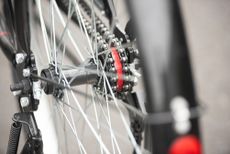 'It's an engineering feat' - Why this 23kg bicycle has two chains
'It's an engineering feat' - Why this 23kg bicycle has two chainsThe Buffalo Utility S2 bike, distributed by non-profit World Bicycle Relief, is built with simplicity and durability in mind
By Tom Davidson Published
-
 'Anything can happen': Our men's rider of the year Joe Blackmore looks back on a stellar 2024 and weighs up his future
'Anything can happen': Our men's rider of the year Joe Blackmore looks back on a stellar 2024 and weighs up his futureThe Londoner tells Cycling Weekly about his hopes for next season, his sporting heroes, and how he plans to walk the tightrope between on road and off
By James Shrubsall Published
-
 I've received some terrible cycling-themed Christmas presents over the years - and I treasure them all
I've received some terrible cycling-themed Christmas presents over the years - and I treasure them allEach bike-patterned gift is a reminder that we cyclists stand for something
By Tom Davidson Published
